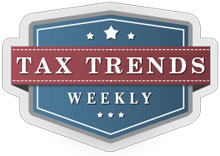How 2013 Threw Off This Year’s Tax Season
It looks like many of 2013’s headline events will be affecting tax filing season in 2014. The government shutdown and sequestration will have an impact on when and how taxes will be filed in the coming year. Here’s what you should know about filing your federal income tax in 2014.
The 2014 filing season will begin on January 31 (or later).
Even though the shutdown happened months ago, the government is still trying to catch up on the lost days. That includes the IRS, who announced in October that tax filing season would be delayed by one to two weeks in 2014. Apparently, the IRS was not able to make up for the 16 days of lost time, since fall is its busiest time of year. The government closure stalled their efforts to prepare and test the new 2014 system. The IRS warned that there will be no advantage to filing on paper before the official beginning of tax season but that using e-file and direct deposit will cut down on the wait for tax refunds. The official date has not yet been announced. The IRS is shooting for the 31st of January but says it may have to wait until February 4.
The IRS will offer less in-person but more online help with filing.
Thanks to sequestration and other cuts, the IRS will delegate less in-person assistance to people who need help filing their taxes. Walk-in services will be limited in 2014. Alternatively, the IRS will direct taxpayers to 13,000 partner sites for assistance and will allow people to view their tax transcripts on IRS.gov. Because of cuts, the Practitioner Priority Service, which has been used by both tax payers and tax professionals, will now be limited to professionals only. Additionally, requests for Employer Identification Numbers and tax refund inquiries will be handled online.
Tax return help will come from volunteers and hotlines.
Because of cutbacks, the IRS will be directing those in need of assistance to the IRS Volunteer Income Tax Assistance (VITA) and Tax Counseling for the Elderly (TCE). These are volunteer groups that work with qualifying individuals from locations like community centers, libraries, and schools. The IRS has also posted a long list of hotlines on their website in hopes of streamlining assistance. Tax payers can call about topics ranging from tax filing for business to questions about specific tax forms.

